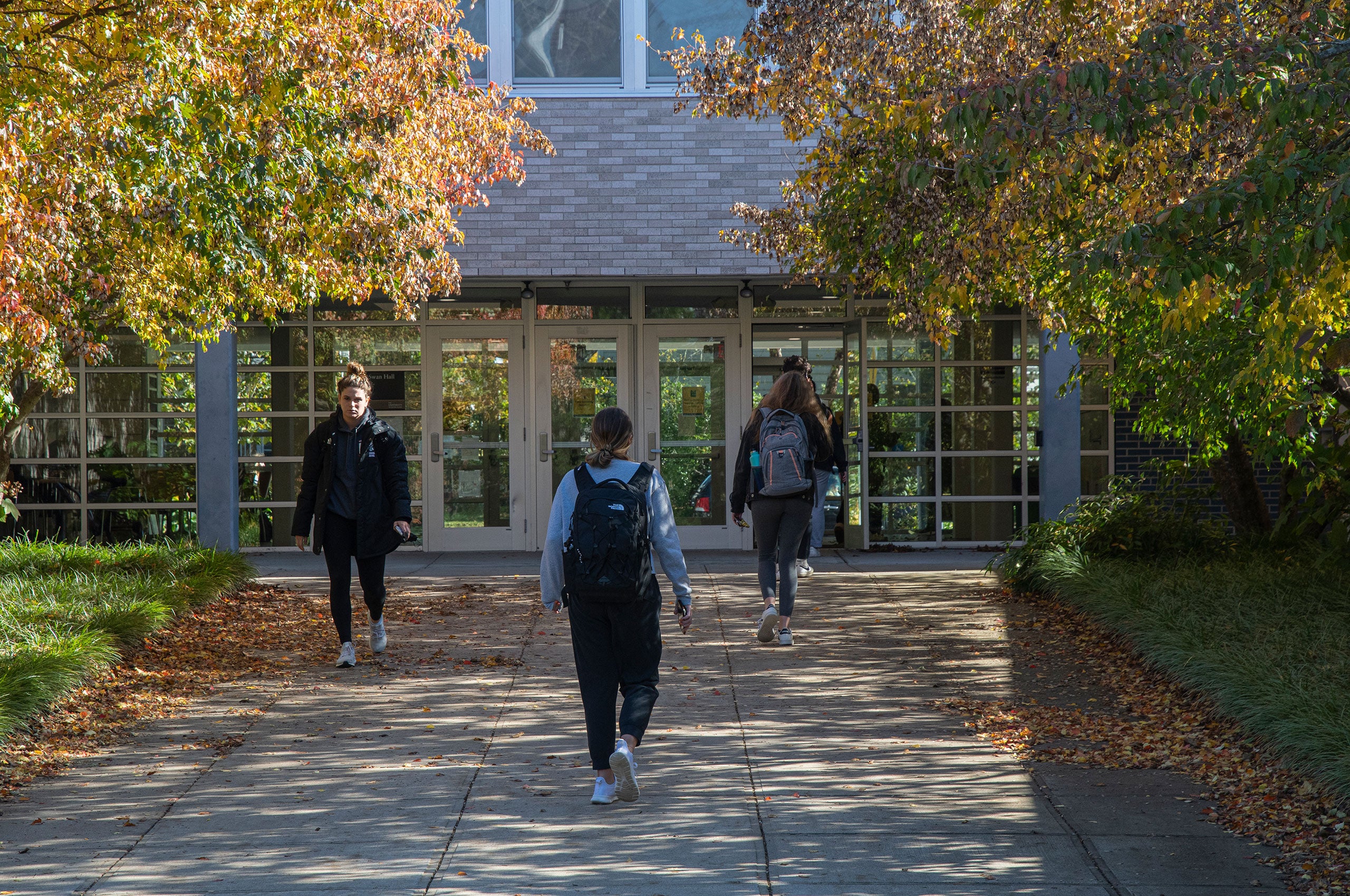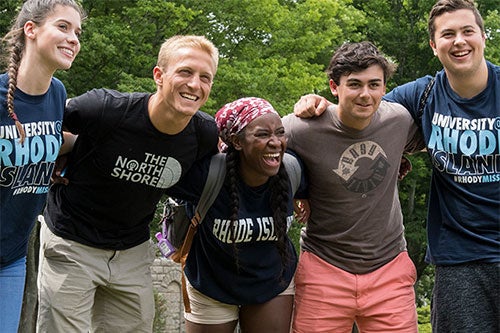
When university life fails to meet a first-year student’s expectations, the consequences can be serious, even life-altering.
A 2018 National Institutes of Health study reported that students who find the high-school-to-college transition difficult are at higher risk of experiencing distress, poor grades, and even dropping out. URI 101 supports a successful transition to college while setting up students for future success.
A one-credit, transition-to-college, and academic planning seminar for first-year and some transfer students, URI 101 sets the foundation for a student’s academic life. The University runs about 150 sections of URI 101 each fall.
Most sections group students according to their major and are taught by faculty and staff who work within that discipline. If students do not have a major, the instructors help them in their decision-making. URI 101 assists students in finding the right major through a four-step process that considers a student’s personality and skill set. And while the goal is to plan, define, and develop the skills that contribute to each student’s academic success in their major, URI 101 covers a broad range of topics, including self-care, campus life, and technology tools.
Additionally, student mentors, sophomores and older, advise students, providing peer-to-peer advising and sharing their own firsthand experiences of campus life.
That URI 101 organizes students by shared interest allows for real friendships to form, says Kelsi Conlon, ’24, mentor and nursing major.
‘A great way to meet people’
“URI 101 is a great way to meet people and form study groups. Also, this class serves as the foundation to the rest of your college journey here at URI,” Conlon says. “Students learn about resources, technology, classes, involvement opportunities, and so much more.”
The intent is to address the students’ needs holistically, says Kimberly Stack, director of URI’s Center for Career and Experiential Education.
“We’re creating a space of caring. Caring that you’re eating, caring that you’re sleeping, caring that you’re happy,” says Stack.
At its core, URI 101 is about retention and student success. First-year and transfer students can be a vulnerable population. Any number of situations, small and large, can undermine a student’s academic and social success. Roommate conflicts, difficulty making friends, and even filling out a class schedule can be obstacles.
Mentor Victoria Pipolo ’23 is double majoring in Human Development and Family Sciences and psychology. The New Jersey native says even though URI was her first choice, the transition was hard.
“I experienced intense feelings of homesickness. I felt like I had no friends and didn’t belong,” Pipolo says. “I thought I’d made a huge mistake in coming here.”
A URI 101 presentation encouraging students to get involved in campus life was the catalyst Pipolo needed to make a change. “Because of the presentation, I looked into clubs at URI and found the URI Dance Company. The dancers have become family to me. No matter what kind of day I’m having, whether I’m stressed or frustrated or sad, once I go to dance, I feel right at home. If it weren’t for my URI 101 mentor and her presentation in my first semester at URI, I don’t know if I would’ve stuck around for the next four years.”
—Marybeth Reilly-McGreen

